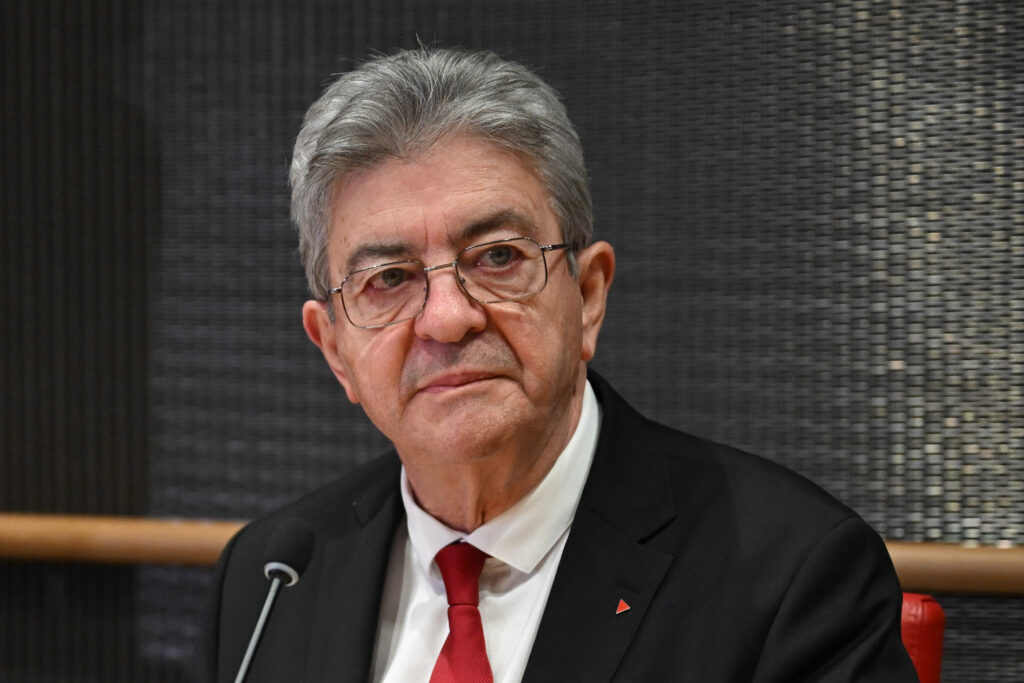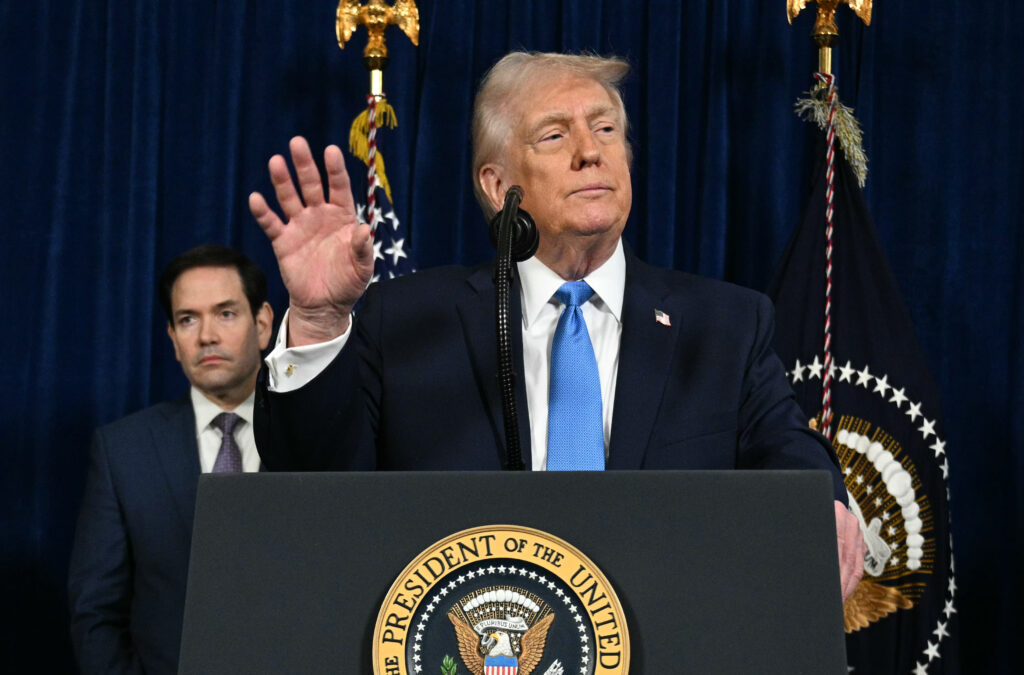Venezuela: Macron “prend acte” de la fin de la “dictature” et ulcère la gauche
Emmanuel Macron a “pris acte” samedi de la fin de la “dictature Maduro”, dont le “peuple vénézuélien” ne peut que se “réjouir”, dit-il. Une position qualifiée de “honte” par la gauche qui accuse le président français de complaisance envers les États-Unis.”Le peuple vénézuélien est aujourd’hui débarrassé de la dictature de Nicolas Maduro et ne peut que s’en réjouir”, a écrit sur X le chef de l’État. “En confisquant le pouvoir et en piétinant les libertés fondamentales, Nicolas Maduro a porté une atteinte grave à la dignité de son propre peuple”, a-t-il insisté, sans évoquer dans son tweet les attaques américaines qui ont abouti à la capture du président vénézuélien.L’entourage de M. Macron a fait savoir peu après qu’avait été pris “acte de l’opération américaine”. “Un dictateur a été déchu. Le droit international doit désormais être respecté”, a-t-on fait valoir de même source.Mais pour Jean-Luc Mélenchon, leader de La France insoumise, “la prise de position de Macron n’est pas la voix de la France. Il nous fait honte. Il abandonne le droit international”. “Jour sombre pour notre pays”, a-t-il encore écrit sur X, appuyé par son lieutenant Manuel Bompard qui s’est désolé de voir “la France réduite à féliciter les coups de force de Trump”.Même indignation du côté du Parti socialiste. Selon son premier secrétaire Olivier Faure, “la France n’est pas un État vassal des USA et notre président ne peut pas se comporter comme un simple porte-parole de la Maison-Blanche”. “M. Macron piétine ce soir toute notre histoire diplomatique. Une honte”, a abondé le patron des sénateurs PS Patrick Kanner.Une “honte ultime” même pour le N.1 du Parti communiste Fabien Roussel, pour qui la France est “rabaissée au rang de 51e état des USA”.Samedi en fin d’après-midi, plus d’un millier de personnes, agitant pour certaines des drapeaux vénézuéliens, étaient réunies place de la République à Paris pour protester contre l’attaque, à l’appel notamment de LFI et du parti communiste, a constaté un journaliste de l’AFP. Parmi elles, M. Mélenchon qui a dit qu’il fallait “sans barguigner, exiger la libération et le retour immédiat de Nicolas Maduro libre au Venezuela”.L’exécutif avait été plus offensif samedi après-midi par la voix du ministre des Affaires étrangères Jean-Noël Barrot qui a affirmé que l’opération américaine “contrevient” au droit international. “La France rappelle qu’aucune solution politique durable ne saurait être imposée de l’extérieur et que les peuples souverains décident seuls de leur avenir”, avait-il encore écrit sur X.M. Macron a préféré mettre l’accent sur la “transition à venir” qui “doit être pacifique, démocratique et respectueuse de la volonté du peuple vénézuélien”. En ce sens, il plaide pour que celle-ci soit assurée “au plus vite” par Edmundo Gonzalez Urrutia, candidat de l’opposition à la présidentielle 2024. Alors que Donald Trump a de son côté déclaré que les États-Unis “dirigeraient” le Venezuela jusqu’à ce qu’une transition politique “sûre” puisse avoir lieu.”Ce qui importe à présent est que la parole revienne au plus vite au peuple vénézuélien”, appuie encore l’entourage de M. Macron, qui précise que ce dernier a échangé samedi avec Donald Trump, le président argentin Javier Milei ou brésilien Lula.- Equilibrisme -A l’image de l’exécutif, d’autres responsables politiques ont dû s’employer à un exercice d’équilibriste samedi, partagés entre la volonté de dénoncer l’attaque américaine, sans pour autant apparaître comme un soutien de Nicolas Maduro.”Pas une larme pour le dictateur ploutocrate Maduro, mais il faut avoir conscience que nous entrons dans un monde sans droit international où prévaut la loi du plus fort”, a déclaré l’eurodéputé social-démocrate Raphaël Glucksmann.Dans la même veine, Gabriel Attal, chef de file des députés macronistes, a affirmé qu’il “ne regrette pas” le départ de ce “dictateur”.Il a dit voir dans l’opération américaine “un signe supplémentaire que le monde est désormais régi par la force” et a incité les Européens à s’adapter pour ne pas être cantonnés au rôle de “spectateurs impuissants”.La patronne du Rassemblement National Marine Le Pen a jugé qu’il y avait “mille raisons de condamner le régime de Nicolas Maduro: communiste, oligarchique et autoritaire” mais que “la souveraineté des États n’est jamais négociable”.”Renoncer à ce principe aujourd’hui pour le Venezuela, pour n’importe quel État, reviendrait à accepter demain notre propre servitude”, a-t-elle ajouté.Le président des Républicains Bruno Retailleau a semblé plus conciliant avec Donald Trump, en estimant que le narcotrafic nécessite “une réplique ferme” même si la souveraineté vénézuélienne “demeure sacrée”.






